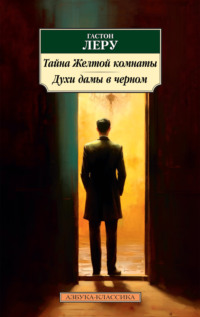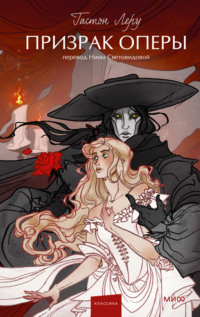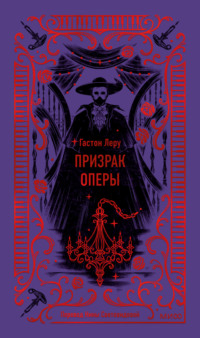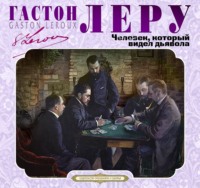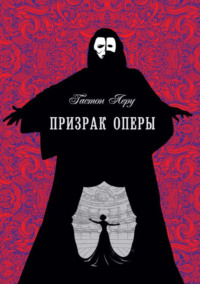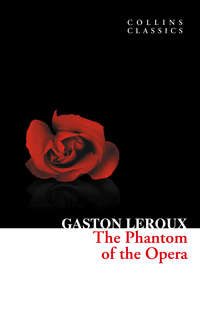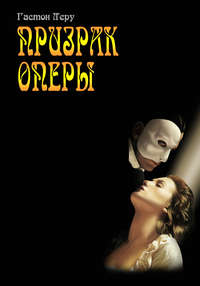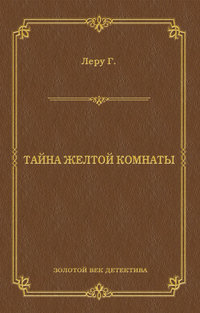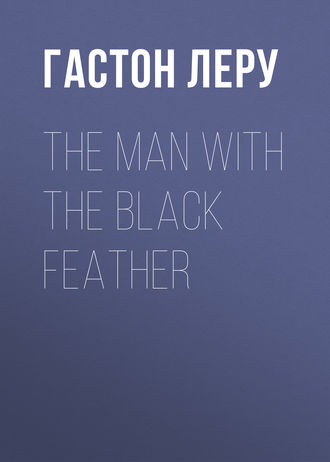 полная версия
полная версияThe Man with the Black Feather
"But at last he said: 'All this about their organs is very interesting. But how do you catch them?'
"'I can only tell you that the Catacombs which contain all these millions of bones cannot offer us a single maggot in the way of bait.'
"'No matter,' said Theophrastus. 'There are more ways of killing a dog than hanging him. An angler has more than one trick in his basket; and the Asellus Aquaticus had better look out.'
"That day and the days which followed it were very much alike. Whenever we came to a stream we stopped and drank. Always M. Longuet wanted to stop and fish. This was not wholly hunger; the sportsman's ardour burned in his soul. But I represented to him that, for anything we knew, we had the whole three hundred and ten miles of Catacombs to traverse before we came to the exit, and that it was our first duty to walk and walk. We might have fallen into them at the furthest end.
"By eleven o'clock, not only the sustaining but also the satisfying effect of the ounce of ham appeared to be exhausted; we were not only extremely hungry, but we were moving at a much slower pace. I represented to M. Longuet that it would be wise to have our déjeuner at once. But his dreadful middle-class instincts were too strong for us. He had the habit of a regular life so ingrained in him that he would not hear of déjeuner before noon. Also I marvelled at his power of endurance: I had never suspected that the manufacture of rubber stamps could endow a man with those muscles of steel. None the less we talked very little between eleven and noon.
"That ounce of ham was one of the most delicious meals I have ever eaten. M. Longuet, who seemed in the course of our conversation to have caught some of my scientific spirit, timed the meal by my watch. It was a source of great satisfaction to him that he took from nine to eleven seconds longer over each mouthful than I did. After it we proceeded on our way with renewed vigour; and since I found that he was of the truly receptive type of mind, I found our conversation very enjoyable.
"The afternoon was exactly like the morning. We walked, conversing about a dozen different subjects. The next morning was exactly like the last afternoon; and the days which followed were exactly like one another. The second and third days were the least comfortable. On those days the satisfying effects of our ounces of ham appeared to exhaust themselves more quickly. But after the third day I began to realise the great value of the discovery of M. Fletcher of the United States. Our appetites had become quite normal; an ounce of ham blunted them till the next meal. We were losing weight indeed, especially M. Longuet, whose waistcoat hung somewhat limply down in front. But the muscles of our legs appeared to have grown stronger; and undoubtedly our intellects had grown quicker and more alert. When we had exhausted my subjects, I learned from M. Longuet the process of making rubber stamps, with a thoroughness which fits me to embark at any moment on that career. I found that he was even quicker to acquire the knowledge which goes to the making of an able Commissary of Police.
"It would indeed have been a very pleasant walking tour, thanks to that unlikeness of our natures which produces the most harmonious companionship, had it not been for the monotony of the scenery through which our way lay. The subterranean passages, illumined by our lamps, were sometimes vast, sometimes narrow, sometimes rounded like the naves of the cathedrals, sometimes square, angular, and mean, like the corridors of workhouses. But they presented no spectacle of great variety. When he had said, 'Look, stone! Look, clay! Look, sand!' we had said everything, because we had seen everything.
"It was on the afternoon of the fourteenth day that M. Longuet embarked on a subject of conversation extremely distasteful to me, the edible qualities of the human body. I tried gently to divert him from it; but it appeared to have become one of his fixed ideas; and he harped on it for two very tedious hours. That evening I halted for supper on the banks of a stream, nearly eighteen inches wide, which ran across the passage we were in; and after supper I suggested that, before retiring for the night, he should for once glut his sportsman's ardour.
"Though indeed he had no hooks, he fell to his angling with the liveliest eagerness. We turned the light of our lamp on to the waters of the stream, and presently out of the hole in the wall from which it issued, there came swimming a little fish. Then we found that hooks were unnecessary in the sport of the Catacombs. Owing to the fact that the little fish had no eyes, M. Longuet was able to lay his hand on the bed of the stream, which was, perhaps, at that point three inches deep, and when the little fish came swimming over it, to jerk up his hand and fling it on the bank. We examined his catch in the light of our lamp; but I was unable to say whether it was an Asellus Aquaticus or a Cyclops Fimbriatus.
"In the course of the next quarter of an hour we caught three more of these little fishes (they were nearly four inches long); then, at the sight of fresh fish, a wolfish gleam came into M. Longuet's eyes; and he suggested that we should repeat the supper we had only just finished. After his distasteful conversation of the afternoon, I made no objection. But with his ineradicable middle-class instinct he complained that we had no means of cooking our catch. I explained to him that our early ancestors, the cave-men, probably ate most of their food raw, and whatever else we were, we were, at the moment, undoubtedly cave-men. With this new intellectual alertness, acquired by following the method of M. Fletcher of the United States, he saw my point. We cleaned the fish with the knife of Signor Petito and ate them. They were delicious.
"But, as I should have foreseen, so much rich food coming suddenly after the rational diet on which we had subsisted during the last fortnight was too much for us, and for several hours we suffered the most acute pangs of indigestion. Moreover, with the greedy haste of gourmands, we had not timed ourselves over the meal, and had eaten the fish far too quickly. However, no experience is wasted on a rational man; and I realised that one Asellus Aquaticus, after ham, is enough for the logical Fletcherite.
"After the passing of our indigestion, we slept soundly; and the next morning we resumed our journey entirely free from any anxiety: it might take us six months, or it might take us a year, but sooner or later we should find the Ossuary and the exit from the Catacombs, sustained in our task by the Asellus Aquaticus. Indeed it was extremely improbable that it would take us more than a few days longer, for since I had never missed a chance of taking a passage which appeared to lead back to our starting-point, we must necessarily have drawn further and further from it.
"This expectation was realised sooner than I expected, for on the night of the seventeenth day, just as, at the close of a very interesting discussion on the neglect of the logical faculty by the great majority of men, we had turned our thoughts to supper and sleep, we were suddenly confronted by two skeletons.
"They were fastened against the wall on either side, and an arm of either, like the arm of a finger-post, pointed down the passage ahead.
CHAPTER XXVII
M. MIFROID PARTS FROM THEOPHRASTUS
"With a simultaneous cry of pleasure we quickened our steps, and presently we found ourselves between most interesting geometrical and ornamental figures composed entirely of bones.
"I took off my hat to those bones, with a sense of profound relief and gratitude. My stay in the Catacombs had been far from unpleasant, since I had passed the time in the company of such an agreeable and sympathetic companion; but I was glad that it had come to an end. I had had enough of it—possibly the monotony of the scenery had tired me of it. I had fallen into the way of instructing Theophrastus; and at once I taught him to distinguish between the tibia, the cubitus, and the femur. A knowledge of anatomy harms no one. But I was sorry to observe that he listened to me with an air of gloom. He did not seem to share my joy at reaching our journey's end.
"We had walked briskly for more than half an hour; and now and again I had paused to point out to Theophrastus some unusually artistic arrangement of the bones, when suddenly we came upon a lighted candle in the left eye of a skull. I concluded that we had at last reached the realm of the living. Then we came upon candles upon candles in the eyes of skulls, and then chandeliers full of twinkling candles. Then we heard voices: the babbling tinkling laughter of women. We were reaching the end of our journey.
"The first twentieth-century words we heard were:
"'Well, dear boy, this function isn't gay. I prefer the Bullier…'
"'Thank goodness, I'm only eighteen years old—a good long way from replacing these tibias!'
"We came into a big cavern to find ourselves in the middle of a fête. No one paid any attention to us; they took us for guests.
"All along those funereal walls were ranged rows of chairs. The light was bright, the candles and the chandeliers of skulls gleamed. At the end of the cavern was a platform covered with lines of music-stands. The musicians were just coming on to the platform. The audience was taking possession of the chairs; people were arguing and joking about the macabre decoration of the walls.
"All the cafés of the Abyss, all the artistico-mystico-macabre scenes in which life is laughed at and death jeered at, all those boxes of the Butte, in which skulls grin from the walls, and skeletons rattle on the floor, all the funereal carnival of Montmartre were surpassed.
"We had before us fifty musicians of the Opera, of Lamoureux, and of Colonne, who had come down into the Kingdom of Bones to serenade the Dead. And under the vaults of the Catacombs, among their avenues and crossways, where stretch the tragic walls covered with the bony wrecks of men, the funeral march of Chopin raised its lamentation before an audience of æsthetes, of artists, of Bulgarians, of Moldo-Wallachians, of frequenters of first-nights, of M. Mifroid, and M. Theophrastus Longuet, who sleeps peacefully on his chair as he always does at the theatre.
"'Perfect, that first violin! Perfect!' I said under my breath. (I am a connoisseur.)
"What gave me the greatest delight was the exquisite fashion in which the orchestra rendered the adagio of the third symphony of Beethoven. Finally we had 'The Dance Macabre' of Saint-Saëns. Then I tapped Theophrastus on the shoulder and said that it was time we went home. The concert after three weeks of the Catacombs had done me a world of good.
"We walked briskly, and ten minutes later we found ourselves on the surface of the earth. I breathed a deep sigh of satisfaction: with the exception of the ham, there had been nothing old-fashioned about our three weeks' journey through the Catacombs.
"'I told you that we should get out!' I said. 'My wife will indeed be pleased to see me!'
"'So much the better for you and for her,' said Theophrastus gloomily.
"'I should never have believed that the Catacombs were so pleasant,' said I.
"'Neither should I,' said Theophrastus gloomily.
"We walked on for a few minutes in silence. It was so pleasant to be walking under the open sky and the stars instead of under a roof in electric light, that I did not hurry to take a cab.
"Then Theophrastus said, 'What are you waiting for?'
"What am I waiting for? I'm not waiting for anything or anyone. I am being waited for. And I'm sure that Mme. Mifroid must be in a terrible state of anxiety.'
"'But why don't you arrest me? When I asked what were you waiting for, I meant what are you waiting for to arrest me?'
"'No, M. Longuet, no. I shan't arrest you… It was my mission to arrest Cartouche. But Cartouche no longer exists! There is only M. Longuet; and M. Longuet is my friend!'
"The eyes of Theophrastus filled with tears.
"'I have a strong feeling that I'm cured… if only I could be sure of it.'
"'What would you do if you were?' said I.
"'I should go back to my wife, my dear Marceline,' he said wistfully.
"'Well, you must go back to your wife, M. Longuet; you certainly must.'
"'You advise me to?'
"'Of course I do.'
"'No, M. Mifroid, no. She no longer expects me. Before falling through that hole in d'Enfer Street, I was careful to leave my clothes on the bank of a river. She believes me dead—drowned. She must be plunged in profound despair. My only satisfaction is that my dear friend, M. Lecamus, whom you know, has done everything possible for her in her affliction.'
"'That makes it all the more necessary for you to go back to her,' I said.
"'I will,' said Theophrastus; and his face brightened.
"We were shaking hands with one another, with the reluctance to separate of bosom friends; and indeed our sojourn in the Catacombs had made us bosom friends, when suddenly Theophrastus smote his brow and said:
"'I must tell you a story of your youth!'
"Now, if anyone, at such a time, with Mme. Mifroid in such a state of anxiety, had said to me, 'I must tell you a story of my youth,' I should have made some excuse and fled. But he said, 'I must tell you a story of your youth.' It was extremely curious; I stopped and listened; and this was what he told me:
"'The incident took place in this spot, the Buci Cross-roads,' said Theophrastus.
"'Was I very young?' I asked, smiling.
"'Well, you must have been between fifty and fifty-five.'
"I gave a little jump. I am not quite forty. And you can understand my astonishment when M. Longuet spoke of an incident of my youth when I was between fifty and fifty-five. But he paid no heed to my movement, and went on:
"'At that time you had a greyish beard, cut into two long broad points which flowed gracefully down to your belt; and you were mounted—I can see it now—on a fine Spanish horse.'
"'Really? I was mounted on a Spanish horse?' (I have never been mounted on anything but a bicycle.)
"'A Spanish horse, which you gave to one of your archers to hold.'
"'Ah, I was in command of archers, was I?'
"'Yes, of twenty mounted archers, and a hundred archers on foot. All this troop had come from the Palais de Justice; and when it reached the Buci Cross-roads, you dismounted, because you were thirsty, and wished before the ceremony to get outside a pint at the tavern kept by the Smacker.'
"'And for what ceremony had I come from the Palais de Justice with my hundred and twenty archers?' said I, wishing to humour him, for I only wanted to get home.
"'It was the matter of summoning me by Public Proclamation for the murder of the workman Mondelot. Therefore on that day, March 28, 1721, the Clerks of Court, trumpeters, drummers, archers on horseback, and archers on foot, issued from the Palais de Justice in an imposing procession, and after having made the proclamation first in the Court de May, where everything passed quietly, and then again in Croix-Rouge Place, they came back here to the Buci Cross-roads. You had drunk your pint, M. Mifroid, and were mounting your Spanish horse, when this remarkable incident took place. The Clerk of Court read very solemnly: 'In the name of the King, through the Lords of Parliament, the said Louis-Dominique Cartouche…' when a voice, cried: 'Present! Here's Cartouche! Who wants Cartouche?'… On the instant the Clerks of Court, archers on foot, and archers on horseback, drummers and trumpeters, the whole procession broke up and fled in every direction.... Yes; there did not remain a single person at the Buci Cross-roads, not a single person except myself and the Spanish horse, after I cried:
"'Here's Cartouche!'
"Phenomenon more curious than all curious phenomena in the depths of the Catacombs!… M. Longuet had no sooner said, 'Here's Cartouche!' than I started to fly from the Buci Cross-roads as fast as my legs could carry me, as if the fear of Cartouche had dwelt in the calves of the police at the Buci Cross-roads for nearly two hundred years!"
CHAPTER XXVIII
THEOPHRASTUS GOES INTO ETERNAL EXILE
At this point I leave the report of the Commissary of Police, M. Mifroid. The conclusion of it indeed is filled with the most profound and philosophic reflections on the effect of companionship in misfortune on the human heart; but they are not relevant to the story of Theophrastus.
When the noise of the flying feet of M. Mifroid no longer came echoing down the empty street, the heart of that unfortunate man filled with the deepest melancholy. Here was that accursed Black Feather again! Behold him in the flickering light of a street lamp. He shakes his head. Ah! with what a lamentable air does he shake his miserable and dolorous head! Of what is he dreaming, unhappy wretch, that again and again he shakes his luckless head? Doubtless the idea he had had of going back to disturb the peace of his dear Marceline no longer appears to him reasonable. Plainly he rejects it, for his heavy, lagging feet do not carry him towards the heights of Gerando Street.
Some minutes later, he finds himself in Saint-Andrew-des-Arts Place, and plunges into the dark passage of Suger Street. He rings at a door. The door opens. In the passage a man in a blouse, with a paper cap on his head and a lantern in his hand, asks him what he wants.
"Good-evening, Ambrose. You are still awake, are you—as late as this?" said Theophrastus. "It's me. Oh, a lot of things have happened since I last saw you!"
It was true. A lot of things had happened to M. Longuet since he had last seen Ambrose, for he had not seen him since the day on which he had learned from him the date of the water-mark on the document found in the cellars of the Conciergerie.
"Come in, and make yourself at home," said Ambrose.
"I will tell you all about it to-morrow," said Theophrastus. "But to-night I want to sleep."
Ambrose took him up to bed, and he slept the dreamless sleep of a little child.
During the next few days Ambrose tried to induce Theophrastus to speak; but, oddly enough, he preserved a complete silence. He spent his time writing and writing. Once or twice he went out at night. Once Ambrose asked him where he was going.
"A Commissary of Police, M. Mifroid, is writing an account of a journey we took together," said Theophrastus. "And I am going to ask him for a copy of it."
I am inclined to believe that one of these nights he must also have returned to the flat in Gerando Street, by his favourite chimney, and taken away from it the report, which M. Lecamus had written for the Pneumatic Club, of the operation of M. Eliphas de Saint-Elme de Taillebourg de la Nox. Also on one of those nights he must have acquired the sandalwood box inlaid with steel; and since Ambrose believes that he had but little money, it is not improbable that when he acquired it he had his Black Feather.
One evening he came downstairs carrying a box, the sandalwood box, under his arm; and with an air of gloomy satisfaction, he said to Ambrose, "I have finished my literary labours; and I think I will go and see my wife."
"I did not like to speak to you about her," said Ambrose quickly. "Your gloom and your inexplicable behaviour made me afraid that you had some domestic difficulties."
"She is as fond of me as ever!" cried Theophrastus with some heat.
As he left the house, Ambrose said to him, "Be sure you remember me very kindly to Marceline."
Theophrastus said that he would; but to himself he said:
"Marceline will never see me; she must never see me. Not even the Catacombs have torn out my fatal Black Feather. I must not trouble her peace. She shall never see me. But I—I wish to see her once again, from afar, to see if she is happy."
He sobbed in the street.
It is nine o'clock at night, a dark winter's night. Theophrastus mounts the slope at the top of which rise the walls of Azure Waves Villa. With a trembling hand he draws back the bolt of the little door of the garden behind the house. He crosses the garden gently, noiselessly, one hand pressed against his heart, which is beating even more furiously than on the night of the purring of the little violet cat—his good heart, his great heart, still overflowing with love for the wife he wishes to see happy.
There is a light in the drawing-room; and the window is a few inches open, for the night is muggy. You advance slowly, noiselessly to a screening shrub, set down the sandalwood box, and peer through the leafless branches into the cosy drawing-room.
Ah! what have you seen in the drawing-room?… Why that deep groan? Why do you tear the white locks from your brow?… What have you seen?… After all, does it matter what you have seen, since you are dead? Did you not wish to see your wife happy? Well, you see her happy!
She and M. Lecamus are sitting on the sofa. They are holding one another's hand; they are gazing at one another with the eyes of lovers. He kisses her, with respect but with devotion. He is consoling her for the loss of you. You wished it. How can he better console her than by replacing you?
Theophrastus, the gentle, kind-hearted manufacturer of rubber stamps, perceives this. He drops on his knees on the cold, wet grass, weeping tears of bitter resignation. He is reconciling himself to the necessity of the cruel fact that they are sitting in his comfortable drawing-room, and he is kneeling on his cold, wet grass. He is almost reconciled to it; but not quite. What is that that is thrusting, thrusting forth? The upward thrust of the Past—the Black Feather!
The tears are drying in the eyes of Theophrastus. His eyes are gleaming through the dim winter night with an evil gleam. He springs to his feet; he grinds his teeth; he cries hoarsely:
"By the throttle of Madame Phalaris!"
The Past has him in its grip; he is racked by the pangs of the old-time jealousy, and the pangs of the new. In three seconds he is through the window and in the drawing-room. Wild screams of terror greet his entrance; but in ten seconds more M. Lecamus lies senseless in the big easy-chair, bound hand and foot with the bell-rope. When he recovers his senses, the hand of the clock has moved on ten minutes. Torn by fears and suspense, he listens with all his ears. He hears faint movements on the floor above. The minutes pass; twenty minutes pass. Then there is a sound of heavy footsteps on the stairs. Theophrastus enters, once more a changed Theophrastus: his eyes no longer gleam with an evil light; they are full of unshed tears. His face is working with intense emotion; and on his shoulder is a portmanteau.
What does that portmanteau contain?
Theophrastus, his face working with intense emotion, crosses the room to his old friend. He wrings his hand, wrings it for the last time; and in a broken voice, a voice full of tears, he says:
"Good-bye, Adolphe! Good-bye, dear friend, for ever! I am going to the Seine near the Town Hall Bridge. I have to leave this portmanteau. And then I go into eternal exile!"
He loosed his grip of his friend's hand and, his face still working with intense emotion, he went through the window, bearing the portmanteau with astonishing ease.
M. Lecamus has never seen him again; he has never seen Marceline again; he has never seen the portmanteau again. Does the unhappy Theophrastus, luckless exile from the Paris he loves, wander through the far East or the far West? Does he in the old eighteenth-century fashion police Bagdad, or does he build up a rubber stamp business in Chicago?
1
Theophrastus was quite accurate in these historical details. I have discovered that a Madame Taconet did keep, two hundred years ago, the Sucking-Pig tavern, close to Porkers' chapel which was pulled down in 1800, and on its site the chapel of Notre-Dame-de-Lorette was erected. All this district, north west of the Boulevard des Italiens, was covered, two hundred years ago, with ploughed fields, market-gardens, country houses, and Porkers' village. The Sucking-Pig tavern had the worst of reputations, for Madame Taconet sheltered in it all the most abandoned ruffians in Paris.
2
At Guilleri Cross-roads there stood a pillory. It was there that they used to cut off the ears of thieves.


